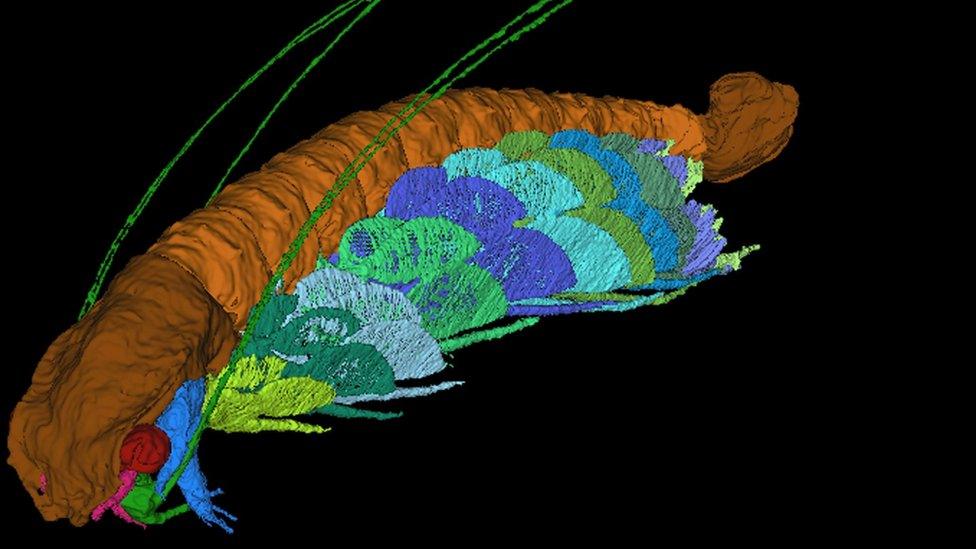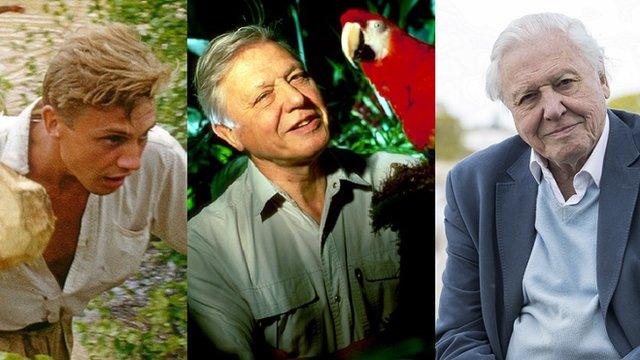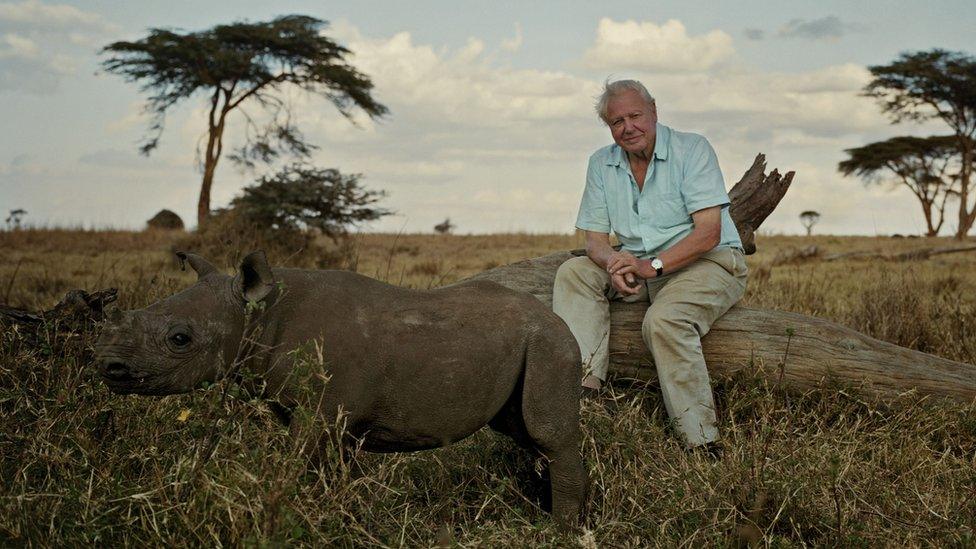Tiny shrimp fossil named after David Attenborough
- Published

Because the fossil was so well preserved, scientists were able to make this 3D model of what it would have looked like.
A tiny shrimp-like fossil which is thought to be around 430 million-years-old has been discovered.
Researchers found the creature preserved in ancient volcanic rock, and decided to name it after their favourite naturalist Sir David Attenborough.
They called it: Cascolus Ravitis, which is a combination of the Latin word for Attenborough, and the Roman word for Leicester, where Sir David lived.
Take a look at some of these other animals named after David Attenborough.

Sir David Attenborough has got lots of animals named after him, and even a boat!
Sir David said: “The biggest compliment that a biologist or palaeontologist can pay to another one is to name a fossil in his honour and I take this as a very great compliment.”
The newly discovered creature is a tiny arthropod - a group of animals which includes things like spiders, shrimp, and crayfish, who have their skeletons on the outside of their bodies, like shells.
- Published8 May 2016

- Published6 May 2016

- Published6 March 2024
